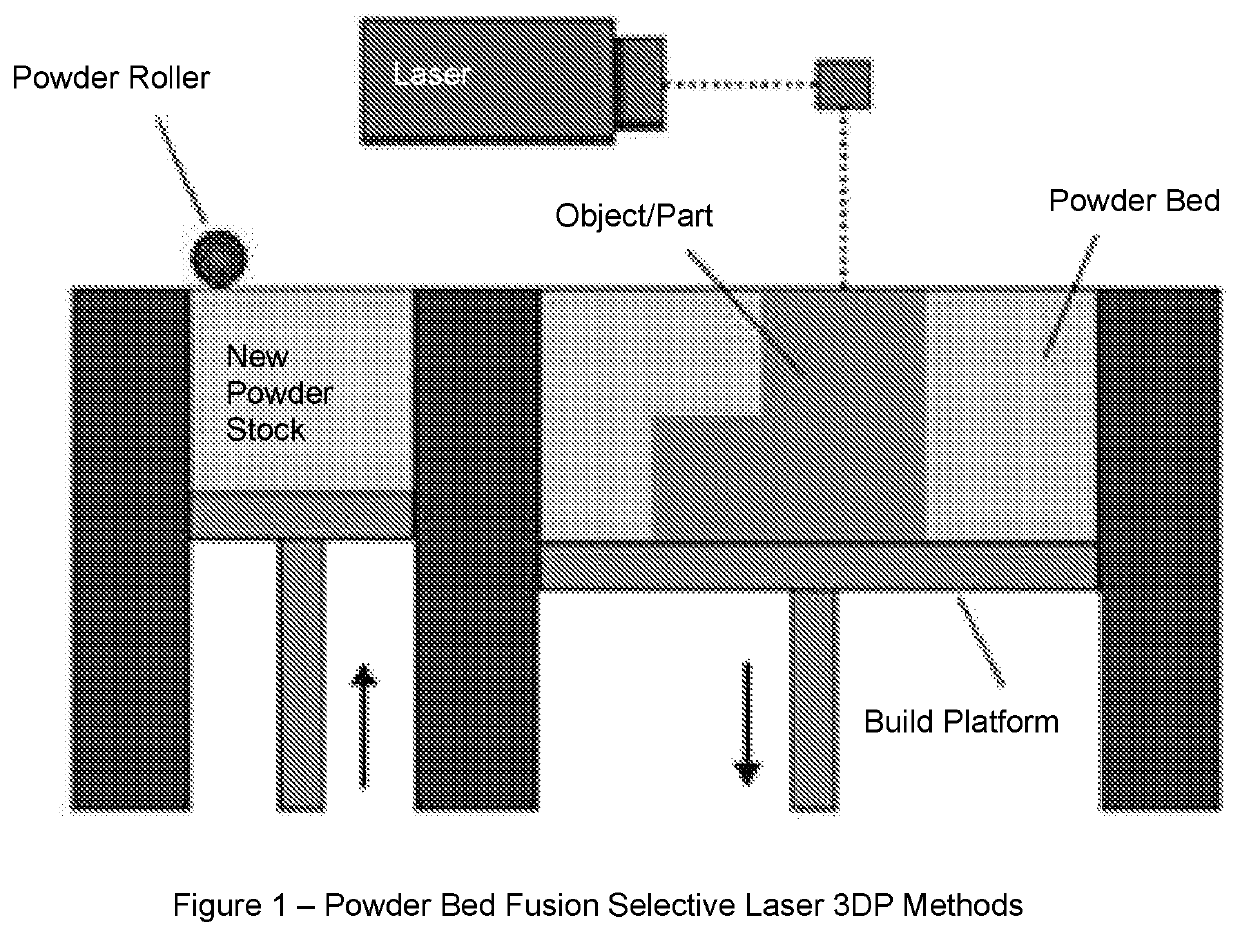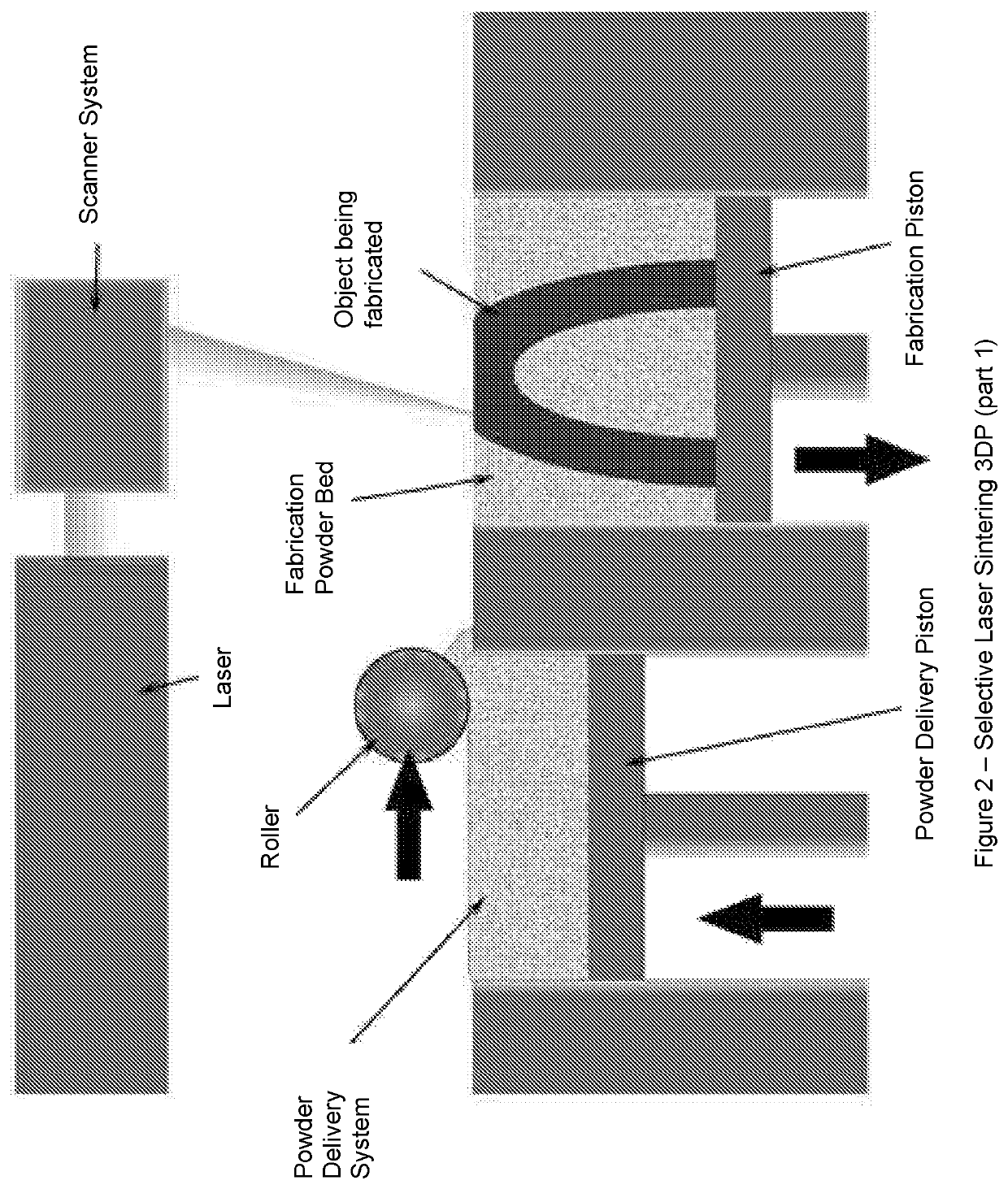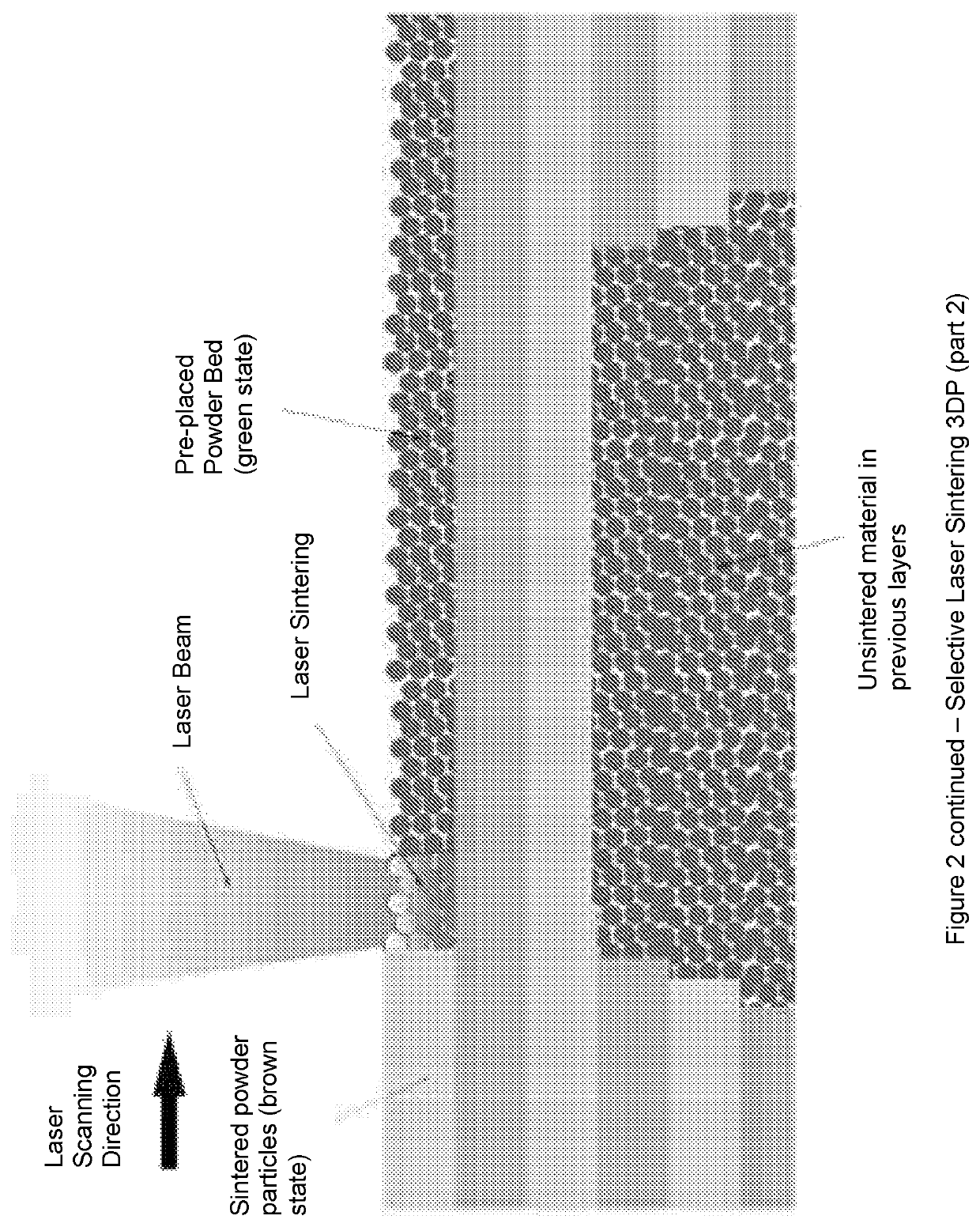Solid pharmaceutical dosage formulations and processes
a technology of dosage formulation and solid substance, which is applied in the direction of pill delivery, pharmaceutical delivery mechanism, organic active ingredients, etc., can solve the problems of inability to generate, unlikely that this technology could be adapted to successfully print drug formulations, and inconvenient to produce fdm
- Summary
- Abstract
- Description
- Claims
- Application Information
AI Technical Summary
Benefits of technology
Problems solved by technology
Method used
Image
Examples
example 1
on of Drug-Loaded Printed Pharmaceutical Dosage Formulations by SLS 3DP
[0401]A mixture of excipient, absorbent material and 5% paracetamol was prepared using a mortar and pestle. Paracetamol was used as a model drug. A polymer excipient having a relatively low glass transition temperature (Tg) was used in combination with a colourant (3-10%) as the absorbent material. Some of the polymers successfully tested include Eudragit L-100-55, Kollicoat IR and Polyethylene oxide.
[0402]
TABLE 4Formulations printed by SLS%PRINTING PARAMETERSAbsorbentLasermaterialChamberSurfacescan(Gold% DrugTemp inTempspeed inExcipientColourant)(Paracetamol)° C.in ° C.mm / secPVA 87-89%35170150110HYDROLISED (MW13-23 Kda)PVA 87-90% HYDR.3517015070(MW 30-70 Kda)PVA NIPPON351309560GOHSEIKOLLICOAT IR (PEG35120909025% + PVA 75%)KOLLICOAT351209090PROTECT(KOLLICOAT IR +PVA)PVA 87-89%35160140110HYDROLISED (MW13-23 Kda) +MANNITOL (50 / 50)PVA 87-89%35150130110HYDROLISED (MW13-23 Kda) +MANNITOL (35 / 65)PVA NIPPON + PEO4513512...
example 2
tion of Drug Loading
[0408]Tablets weighing approx. 300 mg, prepared as in example 1, were placed in a volumetric flask with deionized water (1 L) under magnetic stirring until complete dissolution.
[0409]Samples of the solutions were then filtered through 0.45 μm filters (Millipore Ltd, Ireland) and the concentration of drug determined with high performance liquid chromatograph (HPLC). We used a Hewlett Packard 1050 Series HPLC system, Agilent Technologies, UK. The validated high performance liquid chromatographic assay entailed injecting 20 μL samples for analysis using a mobile phase, consisting of gradient system of (A) water adjusted to pH 2 with orthophosphoric acid and (B) acetonitrile, through a Luna 5 μm C18 column, 150×4.6 mm (Phenomenex, UK) maintained at 40° C. The mobile phase was pumped at a flow rate of 1 mL / min under the following gradient program: 0-15 min, 5-20% B; 15-16 min, 20-5% B.
[0410]HPLC results showed there was no drug degradation during the printing process....
example 3
on Test of the Tablet
[0411]The drug release performance from the tablets produced according to example 1 was evaluated using a USP-II apparatus (Model PTWS, Pharmatest, Germany). The tablets were placed for 2 h into 750 mL of 0.1 M HCl and subsequently into 1000 mL of 0.05M phosphate buffer (pH 6.8). The paddle speed of the USP-II was fixed at 50 rpm and the tests were conducted at 37+ / −0.5° C. The percentage of drug released from the tablets was determined using an in-line UV spectrophotometer (Cecil 2020, Cecil Instruments Ltd., UK) at 244 nm. Data were processed using Icalis software (Icalis Data Systems Ltd, UK).
[0412]Drug release profiles from the different formulations show a wide variety of dissolution profiles depending on the composition of the formulations (see FIG. 6). Burst release is shown for some formulations while controlled-release is shown for another.
[0413]The selection of the printing parameter, e.g. laser speed or temperature, affects the drug release from the 3...
PUM
| Property | Measurement | Unit |
|---|---|---|
| laser power | aaaaa | aaaaa |
| wavelength | aaaaa | aaaaa |
| scan speed | aaaaa | aaaaa |
Abstract
Description
Claims
Application Information
 Login to View More
Login to View More - R&D
- Intellectual Property
- Life Sciences
- Materials
- Tech Scout
- Unparalleled Data Quality
- Higher Quality Content
- 60% Fewer Hallucinations
Browse by: Latest US Patents, China's latest patents, Technical Efficacy Thesaurus, Application Domain, Technology Topic, Popular Technical Reports.
© 2025 PatSnap. All rights reserved.Legal|Privacy policy|Modern Slavery Act Transparency Statement|Sitemap|About US| Contact US: help@patsnap.com



